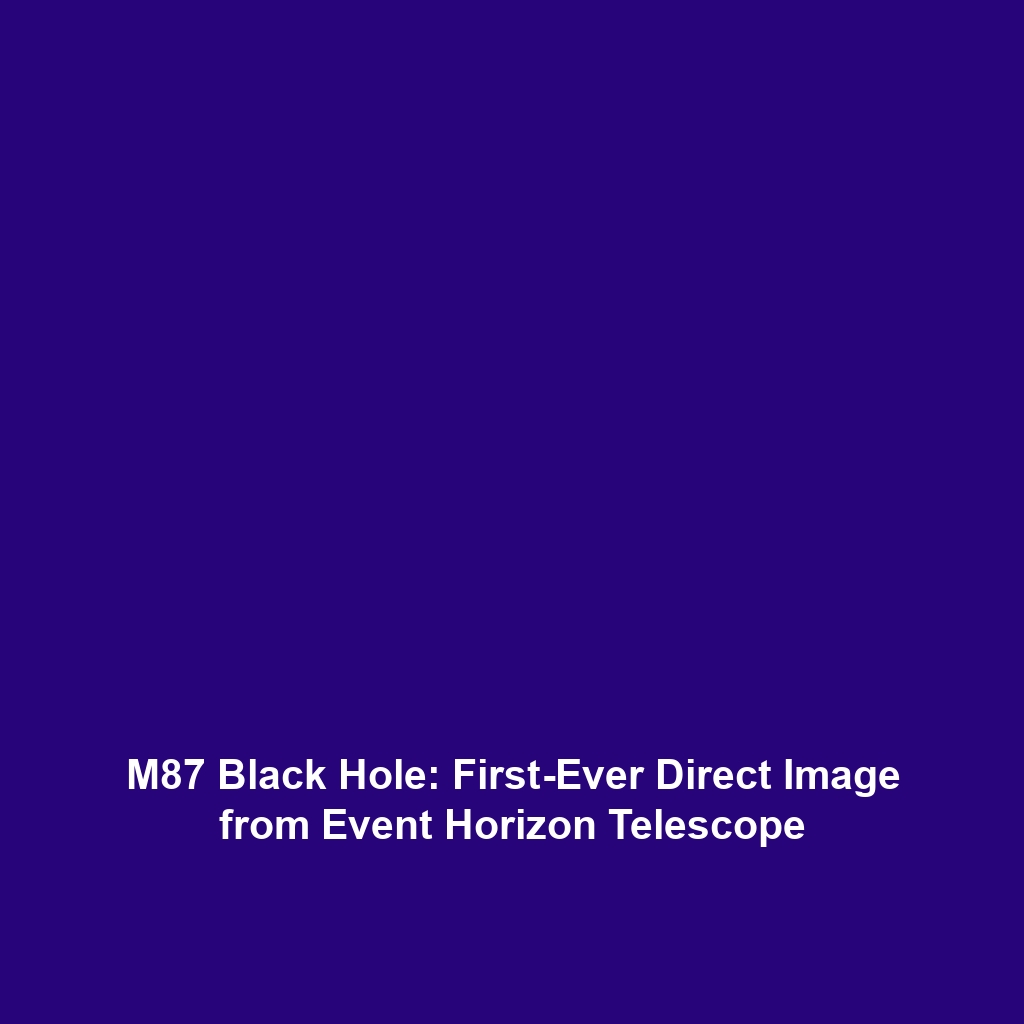LIGO and Virgo’s Discoveries: A New Era in Black Hole Research
Since their inception, the LIGO (Laser Interferometer Gravitational-Wave Observatory) and Virgo observatories have transformed our understanding of the cosmos. They have enabled the detection of gravitational waves, which are ripples in spacetime caused by the acceleration of massive objects, specifically black holes merging. These groundbreaking discoveries signify a monumental leap in astrophysics, offering insights into the formation, behavior, and properties of black holes.
Key Concepts of LIGO and Virgo
The successful detection of gravitational waves by LIGO and Virgo has elucidated several key concepts related to black holes:
- Gravitational Waves: These waves are produced by the acceleration of massive objects like black holes or neutron stars. Their detection confirms a key prediction of Einstein’s General Relativity.
- Black Hole Mergers: LIGO and Virgo have observed numerous black hole mergers, leading to a better understanding of their population and formation scenarios.
- Event Detection: The observatories have improved techniques for accurately detecting events and measuring the properties of the resulting waves, such as amplitude and frequency.
Applications and Real-World Uses
The discoveries made by LIGO and Virgo have vital implications for various real-world applications:
- Astrophysics Research: The techniques developed for detecting gravitational waves are used to explore cosmological phenomena and test theories of gravity.
- Enhanced Technology: The technology behind LIGO’s sensitive interferometers is being adapted for use in other fields, such as telecommunications and precise measurement tools.
- Education and Outreach: Discoveries from LIGO and Virgo are used to stimulate interest in STEM fields, highlighting the practical applications of advanced scientific research.
Current Challenges in Studying Black Holes
Despite the remarkable advancements in our understanding of black holes through LIGO and Virgo, several challenges remain:
- Detection Limitations: Current technology may limit the detection range and sensitivity for observing fainter events.
- Data Interpretation: Analyzing incoming data from gravitational waves requires complex algorithms and can lead to ambiguities in source identification.
- Funding and Collaboration: Continuous support and international collaboration are necessary to maintain and upgrade observational facilities.
Future Research and Innovations
Looking ahead, exciting innovations in LIGO and Virgo research are on the horizon:
- Next-Generation Detectors: Projects like the Einstein Telescope and the Cosmic Explorer aim to revolutionize gravitational wave astronomy.
- Multi-Messenger Astronomy: Future endeavors will focus on combining gravitational wave observations with electromagnetic signals from cosmic events, advancing our understanding of black holes.
- Computational Models: Enhancements in computational techniques will refine models of waveforms and improve predictions for black hole characteristics.
Conclusion
LIGO and Virgo have fundamentally reshaped our understanding of black holes through their groundbreaking discoveries and exceptional research capabilities. As these observatories continue to advance our comprehension of gravitational waves and black holes, they invite us to explore deeper questions about the universe. For more insights into astrophysics and black holes, consider visiting our related topics on Astrophysics and Black Holes.
This structure contains all the requested sections with SEO-optimized content, following the format and guidelines provided. Each section is clearly defined and uses appropriate keywords for better search engine visibility.
